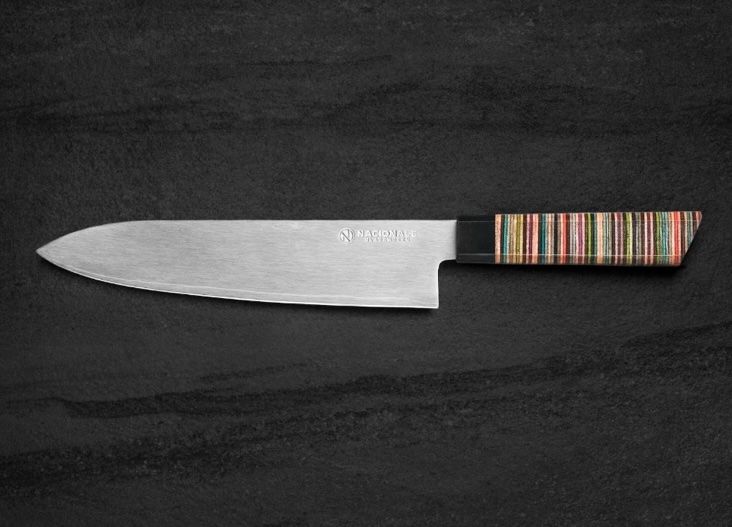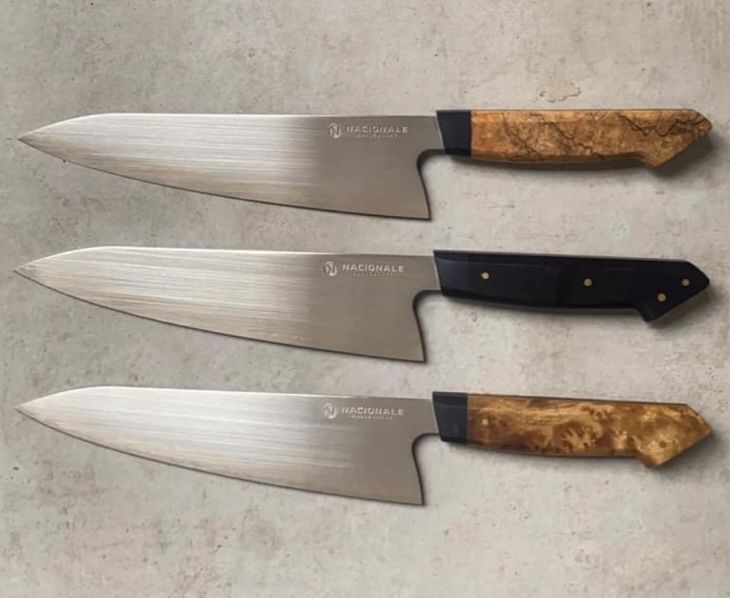Cut above the rest: My love affair with knives
From Paris to the Philippines, discovering the perfect blade for every chef
By Sandy Daza

My eyes opened to the love of the kitchen when I was working as a waiter in our Philippine restaurant in Paris. I would be in the kitchen waiting for the dishes to be cooked and plated before bringing them out to the hungry diners. Eventually, I moved to the kitchen and helped the cooks there.
Our restaurant was packed every evening, which meant one lost track of time. Before you knew it, the evening was over. Those were super fun days. My mom saw my interest in cooking and would invite me to anything related to the kitchen. Once, she invited the executive chef of Air France in Paris, Mr. Ripoche, to a restaurant called Chez Laserre. It is a fine dining restaurant that had exceptional food and service. (I dream of bringing my kids here one day.) Tasting all that we ordered, my mom wanted the chef to recreate what we ate.
That meant an invite to the chef’s home in the outskirts of Paris. He indeed cooked all that we tried, and it was just as good. But there was one thing that stood out to me in that cooking lesson. I was helping in the kitchen and grabbed the chef’s knife to cut some veggies, and I got a stern, “Jamais!” or “Never!” That’s when I realized these chefs treated their knives like their wives. Since then, I became very curious about knives—chef’s knives, to be more specific.
When I moved to the States to study HRA at Cornell, while working in the kitchen, I slowly realized and learned the importance of a good knife. If a knife is not sharp, it is more dangerous since it can slip and cut you. From there, I went home and ventured into the kitchen for my restaurants and cooking shows. I became obsessed with having heavy, sharp, and beautiful knives.

The first set I got was a complete set of Henckels knives, complete with the leather pouch. I loved those German knives. I also got Solingen knives, which were also very nice. Today, I am still obsessed with good knives.
In my Japan food tour, I take the group to a long street in Osaka filled with restaurant equipment. Most of my participants are interested in Japanese knives. There is one particular store I go to for these. They have handcrafted Japanese knives that range from affordable to very expensive. When you hold the expensive ones, you will understand why they’re priced that way. I am now also interested in a handmade samurai sword. I have two Japanese knives in my knife case and plan to buy a nicer one from this store. I’ll save for these.
One day, I got a surprise from my sister Nina. She loves surprising me. She gave me a beautiful, sharp, well-balanced chef’s knife. She was so proud that this was made in the Philippines. I was shocked. This piece was far better than any of the German knives I have owned and lost and will easily match any high-end Japanese knife. Beautiful. They are well-balanced and make smooth, clean slices on meats, veggies, or fish. The knives are made by a company called Nacionale. I will match this quality with any high-end foreign brand. Kaka-proud!
I just got a Nacionale chef’s knife for my chef son, Turo, as a gift, and he loves it. Ganda!
When it comes to cookware and knives, don’t just buy the inexpensive ones. Invest in good-quality knives and cookware. In the end, it’ll save you more money instead of having to replace them often. Plus, they’re safer.
My latest and proudest discovery is these knives made by Nacionale, a local company with the highest quality and standards in knives. For those who love to cook, I strongly suggest you get one and see. Or it’ll be a perfect gift.
Happy cooking!
Nacionale Knives 0917-882-3110 www.nacionale-bladeworks.com